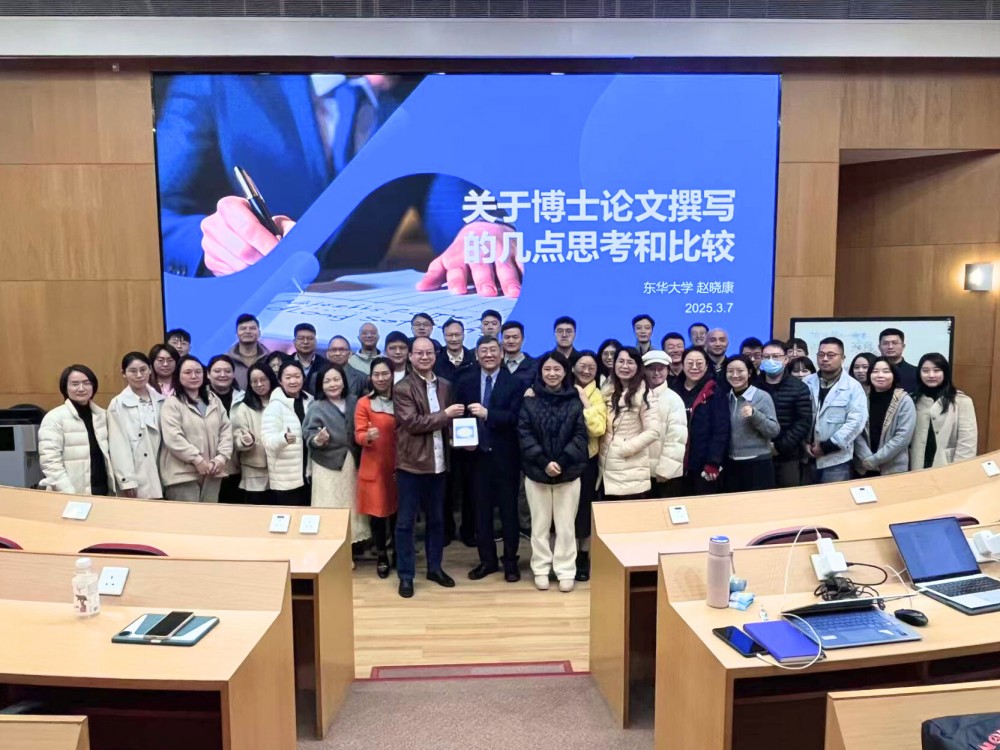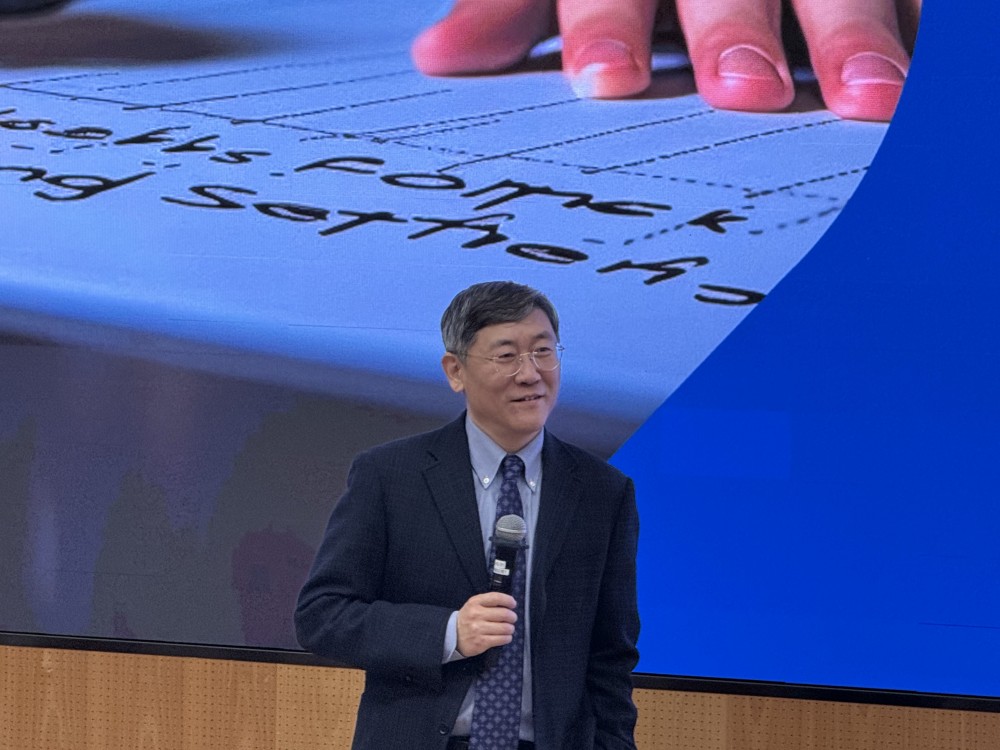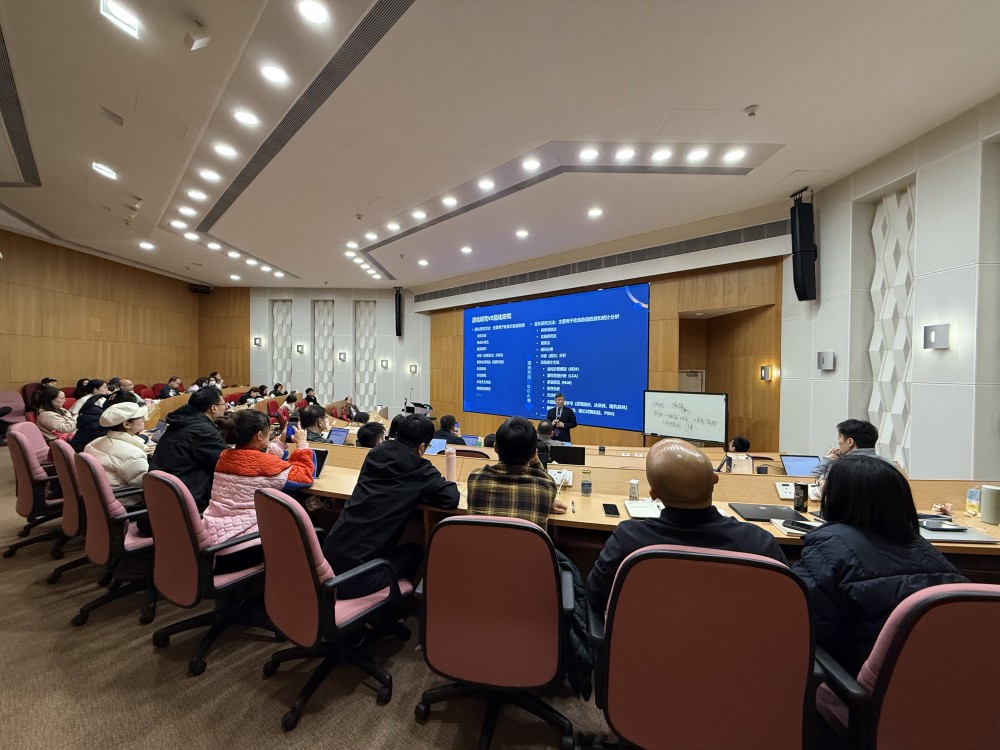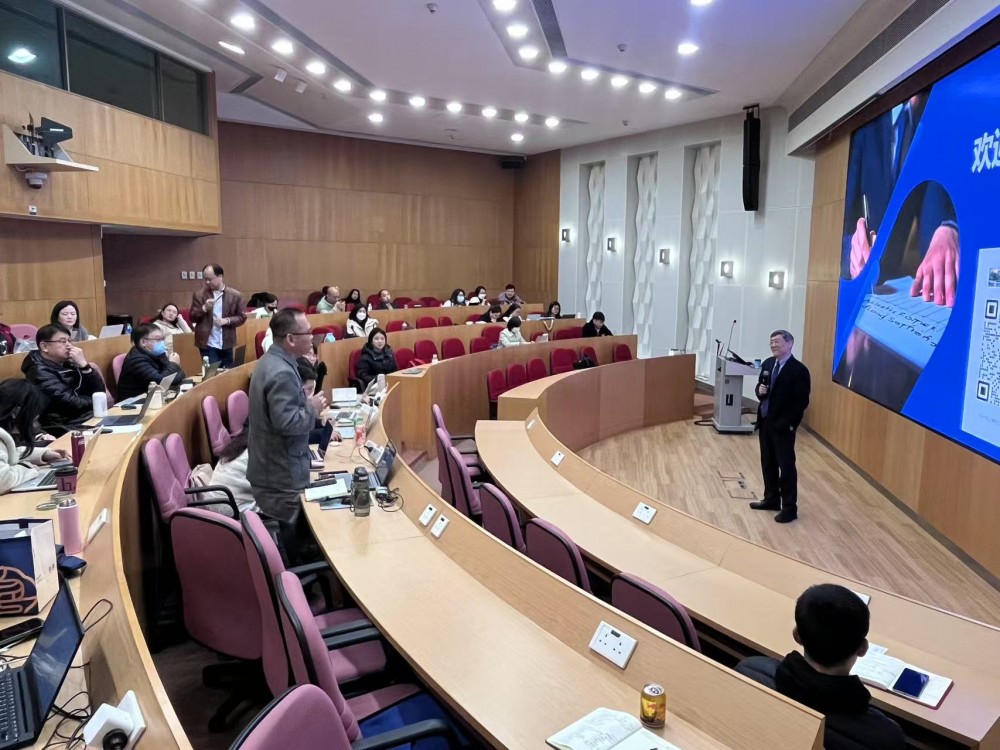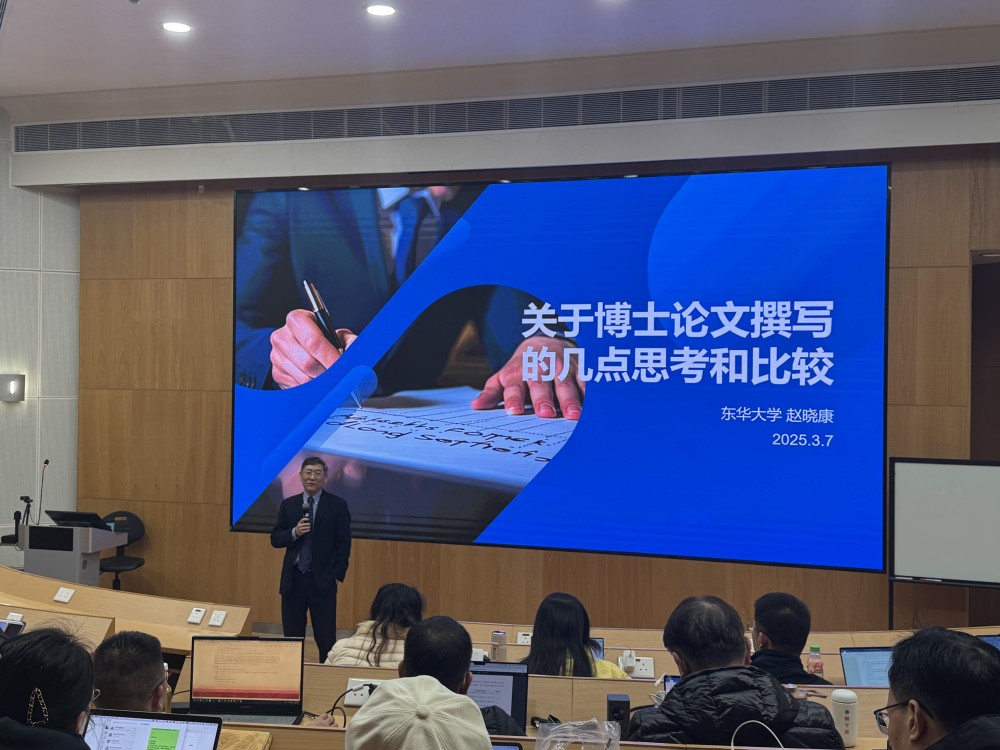On March 7, invited by the Faculty of Business, Professor Xiaokang Zhao from the Glorious Sun School of Business and Management at Donghua University held a special lecture titled “Thoughts and Comparisons on Writing a Doctoral Thesis” at Ho Yin Convention Centre. The purpose of this lecture was to help doctoral students better understand the importance of writing a doctoral thesis, strategies for topic selection, and the search for and expression of innovative points, as well as key elements such as writing techniques for abstracts and conclusions.
At the beginning of the lecture, Professor Zhao emphasized the core position of the doctoral thesis in an academic career. He highlighted that the doctoral thesis is a crucial step in the academic journey and likened it to a business card for one’s career. Professor Zhao pointed out that, in the face of various challenges, graduate students need to plan to ensure the smooth completion of their doctoral theses.
Professor Zhao emphasized the significance of topic selection, reiterating Edison's adage that a strong foundation is crucial for success. He proposed basic principles for topic selection, including interest and passion, academic relevance, and feasibility, and noted that students should consider their advisors' expertise when determining their research topics. Additionally, he compared the differences between DBA and PhD thesis topics, indicating that DBA focuses more on practical business research, while PhD emphasizes theoretical exploration. He also cautioned doctoral students to avoid common pitfalls in topic selection, such as pseudo-problems, time management issues, data traps, and ethical compliance traps.
In the section on finding and expressing innovative points, Professor Zhao indicated that innovation is the core of a doctoral thesis and needs to be clearly articulated. He defined innovation and shared methods for defining and discovering innovative points. Professor Zhao emphasized that innovative points can be approached from new theories, new methods, new perspectives, or new conclusions, and they can be identified through literature reviews that reveal gaps and deficiencies in existing research. When expressing innovative points, it is essential to be specific and avoid vague statements, ensuring that reviewers or readers can perceive the significance of the research.
Regarding the choice of research methods, Professor Zhao compared qualitative and quantitative research methods. He emphasized that qualitative methods are suitable for exploratory research, focusing on profound understanding and theoretical contributions, while quantitative methods are suited for confirmatory research, emphasizing data objectivity and measurability. Professor Zhao suggested that doctoral students should choose appropriate methods based on their research goals and characteristics and consider combining qualitative and quantitative approaches.
In terms of writing techniques for abstracts and conclusions, Professor Zhao pointed out that these sections are the highlights of the thesis and should be carefully crafted. He provided guidelines for writing abstracts and conclusions, including succinctly summarizing the research purpose, methods, results, and conclusions, avoiding technical jargon or lengthy language; summarizing research findings about the research questions; and pointing out research limitations and future directions. Professor Zhao also stressed that abstracts must address four key questions: the positioning of the innovative point, its content, its novelty, and the problems it can explain or solve.
Additionally, Professor Zhao discussed the comparison of thesis formats, including the differences between structured and unstructured theses, and explored whether three separate papers could constitute a doctoral dissertation.
At the end of the lecture, Professor Zhao answered questions from the audience and provided specific advice on how to write a good doctoral thesis. The lecture was rich in content and examples, greatly benefiting the doctoral students. Many expressed that Professor Zhao's insights not only deepened their understanding of writing a doctoral thesis but also provided valuable guidance and support for their future research and writing endeavors.

